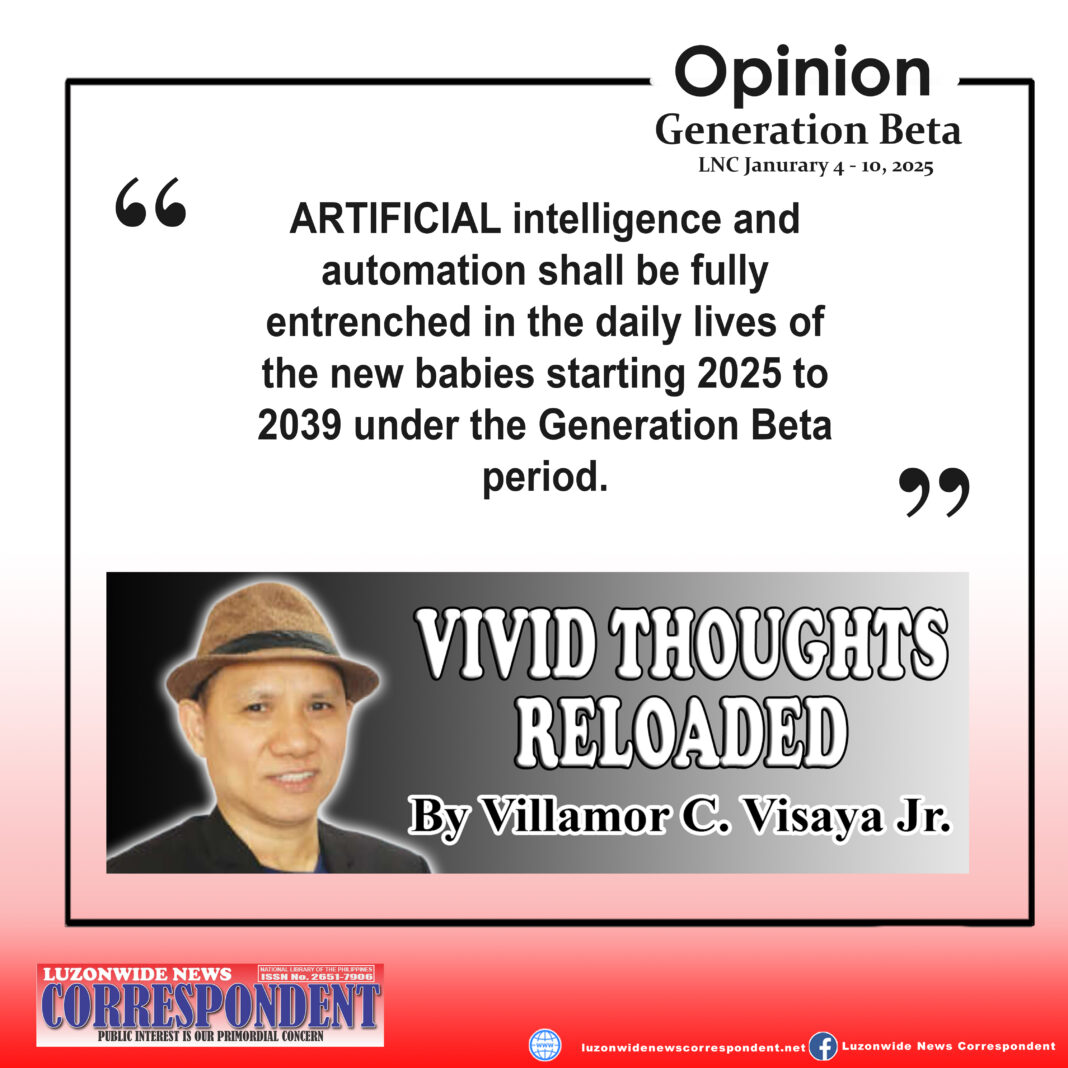By: Villamor C. Visaya Jr.
(Published in its print edition on January 4 – 10, 2025)
ARTIFICIAL intelligence and automation shall be fully entrenched in the daily lives of the new babies starting 2025 to 2039 under the Generation Beta period.
Those who will be born between the said period will likely live into the 22nd century, according to research initiated by the company owned by Mark McCrindle, a demographer and social analyst.
McCrindle has been explicit when he said: “While Generation Alpha has experienced the rise of smart technology and artificial intelligence, Generation Beta will live in an era where AI and automation are fully embedded in everyday life—from education and workplaces to health care and entertainment.”
One of their concerns will be on how to meet vital societal challenges and has been predicted to engage in global priorities such as on how to mitigate the effects and impact of climate change.
Going further, the new-generation babies would be up to the concerns soon as the country lags behind other countries among the ranks of most technologically advanced countries.
The international magazine Global Finance reported in its 2023 edition that the Philippines was ranked 63rd out of 65 countries and had a composite score of -5.77, the lowest among East and Southeast Asian countries.
The ranking was based on internet users as a percentage of a country’s population, LTE users as a percentage of the population, IMD World Competitiveness Center’s Digital Competitiveness Score, and share of a country’s research and development spending to its economic output.
The GenB babies would account for 16-percent of the total world population by 2035, McCrindle predicts, so they are contributory in providing provide health and education services, and address contemporary problems such as climate change and the effects of rapid urbanization.
Welcome to the future, GenB babies!







